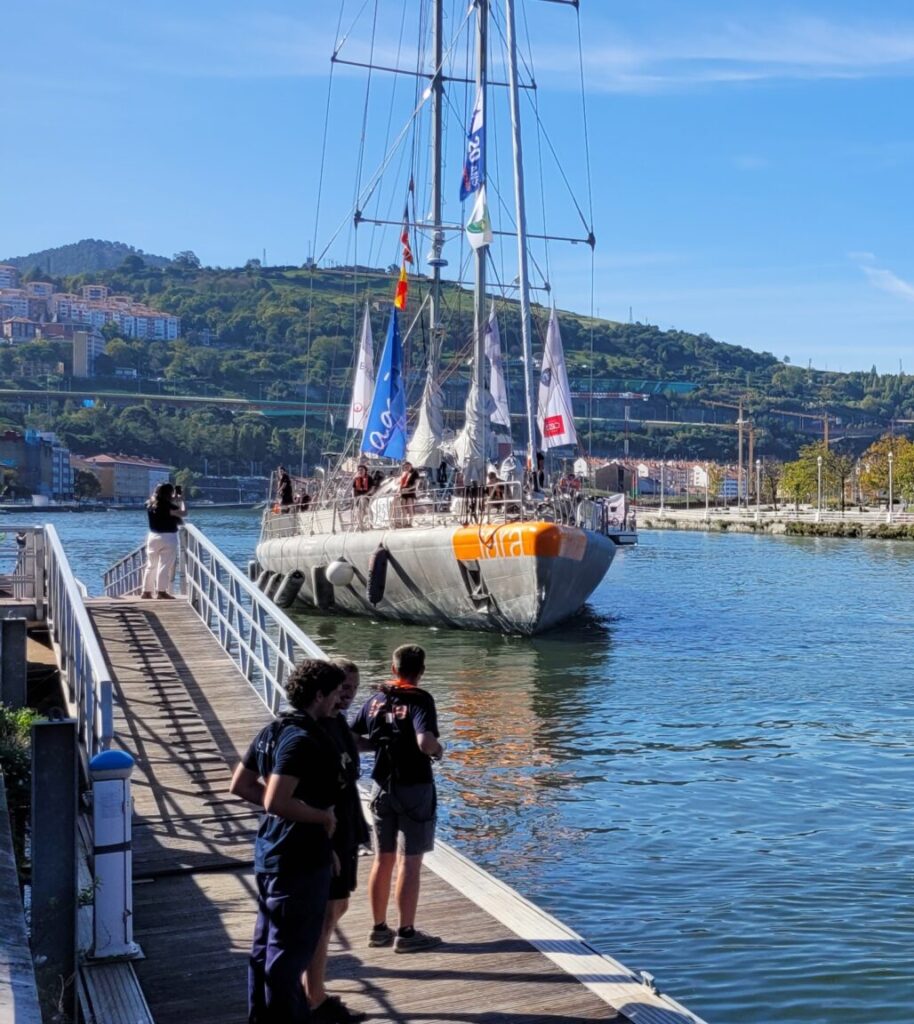To understand how marine life changes with space, time and human impact, we’re collecting a unique set of samples and data from across the European coastline.
This hugely collaborative effort is part of the TREC expedition, a cooperation between EMBL, the Tara Ocean Foundation, EMBRC and over 70 partners. Learn more here.
Accompanying the expedition is a rich public engagement programme designed for schools and the general public. Anne-Marie Alleaume, BIOcean5D’s Public Engagement and Outreach Project Manager and part of Tara Ocean Foundation’s Ocean Literacy team, coordinates these activities at key locations on the TREC expedition route.
As eight months of sampling and engagement activities came to a close, we caught up with Anne-Marie to learn more about why we should promote ocean literacy.
Fundamental research aims to generate knowledge that is valuable for society as a whole. This knowledge isn’t meant to exist only within a closed community of experts – rather, it should be shared and understood by the largest possible number of people.
Public engagement also brings value to science in many different ways. For instance, if we can bridge the gap between the scientific community and the general public, we can build a society with a deeper understanding of the importance of fundamental research. Inspiring young people through these activities might lead them to pursue a scientific career and by engaging the wider public we can strive for a more diverse scientific community – which, in turn, promotes a more creative research environment.
And let’s not forget the interesting exchanges that scientists experience when sharing their research with wider audiences. Sometimes, thinking about their work from a non-expert perspective and putting it back into a more general context can spark interesting questions to explore in the future.
In my role, I coordinate public engagement activities at key locations along the TREC expedition route, where the Tara schooner (our research vessel and floating laboratory) is docked. I work closely with different teams at the Tara Ocean Foundation and the crew aboard the vessel, as well as EMBL’s public engagement team and local partners at each stopover. Together, we identify suitable venues, prepare a common programme of activities and train volunteers who help us run the programme.
 Tara schooner arrives in Bilbao for engagement activities
Tara schooner arrives in Bilbao for engagement activities
This year, I’ve had the opportunity to organise five stopovers in Northern and Western Europe as part of the programme – from Roscoff, France, at the start of the expedition to Tallinn, Estonia, and Galway, Ireland, during the summer and finally Bilbao, Spain and Porto, Portugal, in October.
At each location we propose a series of events that typically involve visits of the schooner, talks from the scientists and crew members as well as exhibitions and interactive workshops. These activities are freely available for the general public as well as local schools and political stakeholders.
One of my highlights from the year was the beautiful biodiversity of microorganisms that we had the chance to observe in Tallinn, Estonia, a city that sits on the Baltic Sea. All participants – including our engagement team! – were mesmerised by the spectacle the invisible inhabitants of the sea had to offer during our microscopy workshop. This made it very easy for us to engage attendees about the importance of preserving plankton biodiversity.
Our local partners at each stopover also have to be acknowledged. Organising such events is a true teamwork exercise, but with a team that is constantly being renewed over the course of the expedition. Thanks to the generosity and flexibility of our partners, the organisation of this year’s events has been a real pleasure. I very much look forward to working with our team of partners for 2024.
The TREC expedition has paused for the winter and will restart again in February 2024. Explore the sites visited so far and keep an eye on future progress in this interactive map.